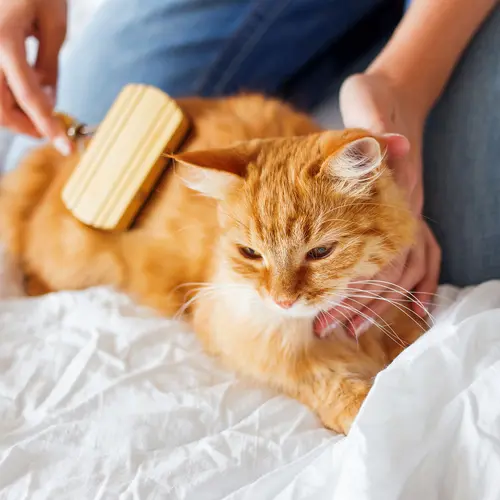In every issue of WebMD the Magazine, we ask our experts to answer readers' questions about a wide range of topics. In our July/August 2012 issue, we asked WebMD's pet health expert, Drew Weigner, DVM, ABVP, about keeping a cat healthy as she gets on in years.
Q: My cat is more than 10 years old. How can I help her age well?
A: Cats tend to age more gracefully than dogs, but as the years go by, they can’t jump to the top of the refrigerator anymore. Their appetites wane. They sleep more.
Marty Becker, DVM, a veterinarian at the North Idaho Animal Hospital in Sandpoint, Idaho, has this advice to help your cat age well.
Schedule twice-annual "wellness" visits. "There’s a grace period for many illnesses: If you catch it early on, it’s usually less expensive and treatment is much more successful. We can do routine tests, such as blood tests or urinalysis, to pick up on the very earliest signs of health problems," Becker says.
Make favorite spots easy to reach. Give her ramps or steps so she can get to the window to bird-watch.
Buy a litter box with shorter sides. A tall litter box can be hard for her to get in and out of.
Get your cat close to her ideal body weight. Your cat may also need a special diet to treat specific health conditions, such as a kidney diet or a liver diet. Ask your veterinarian.
Make sleep and food appealing. Give her softer bedding. Heat her food to release the aromas. Cat fountains encourage cats to drink, which can be a big problem with older cats.

